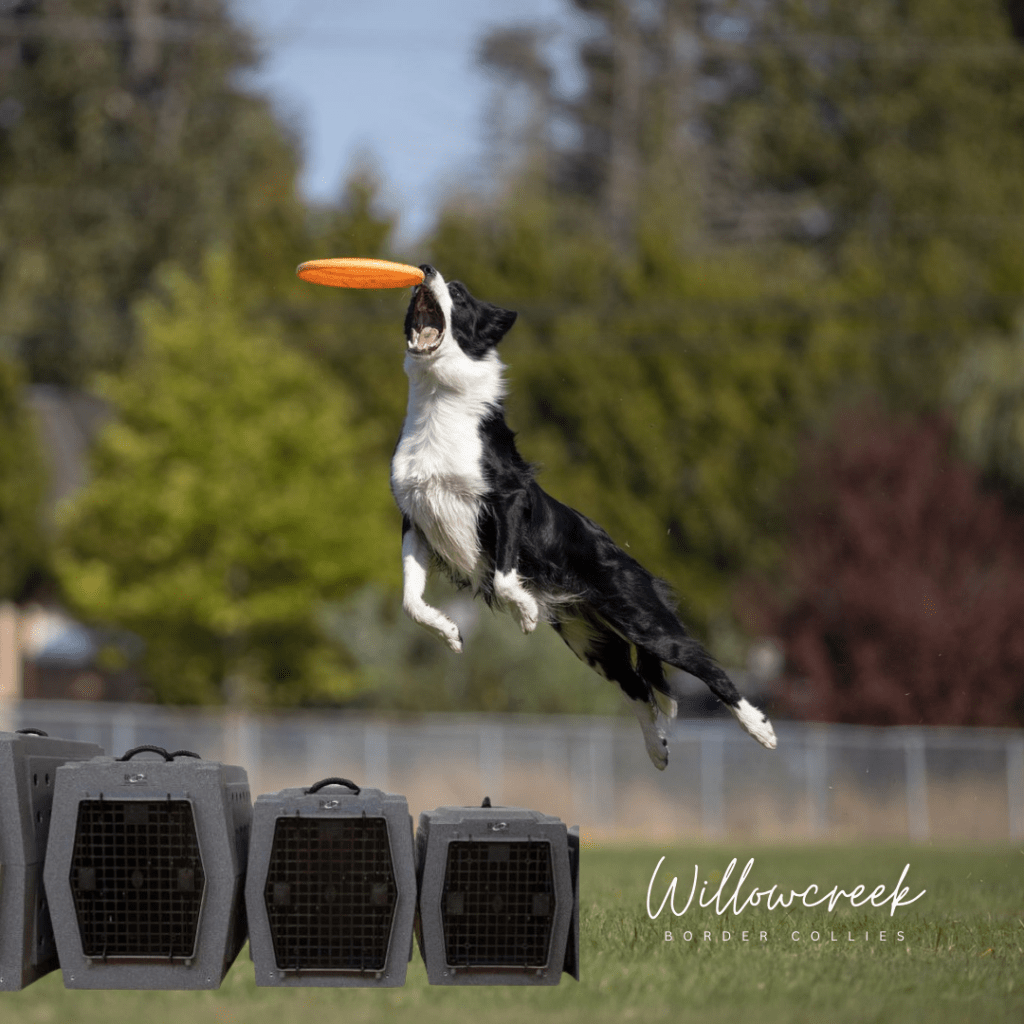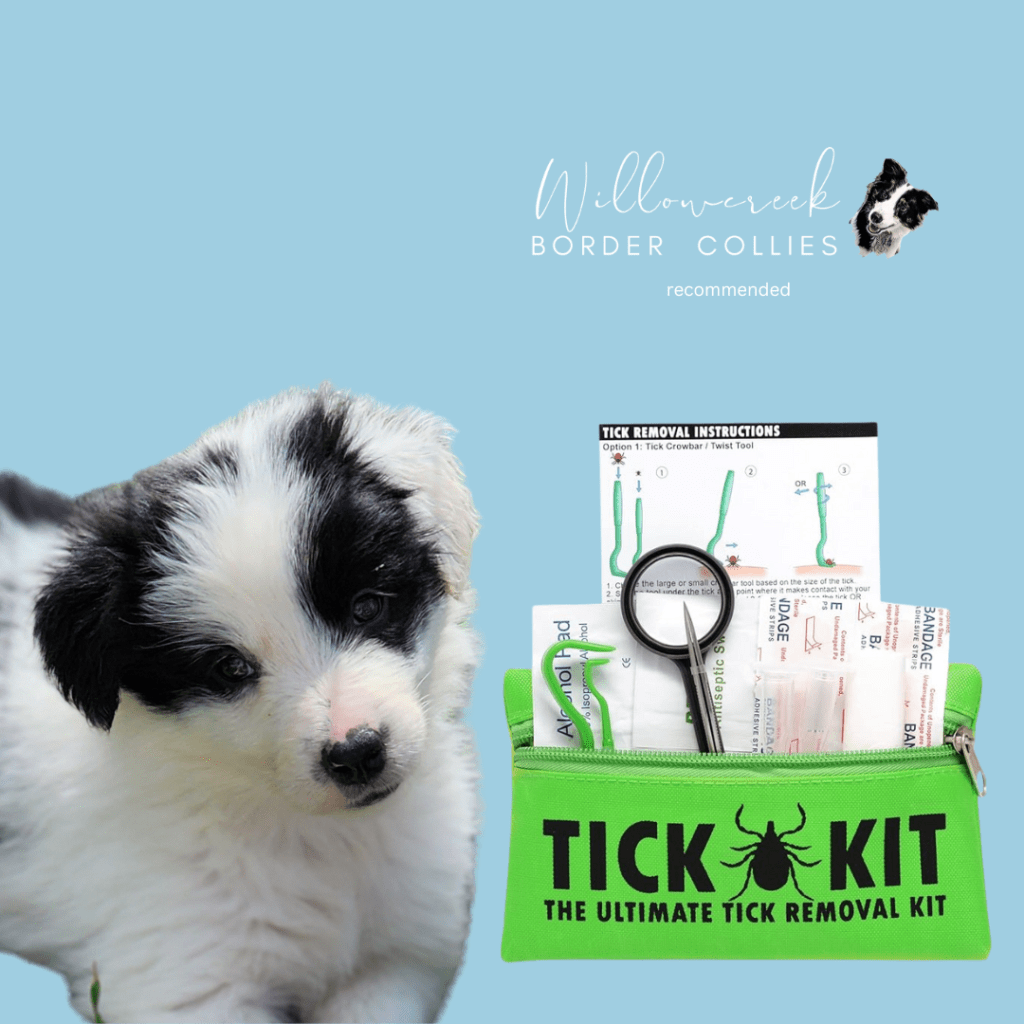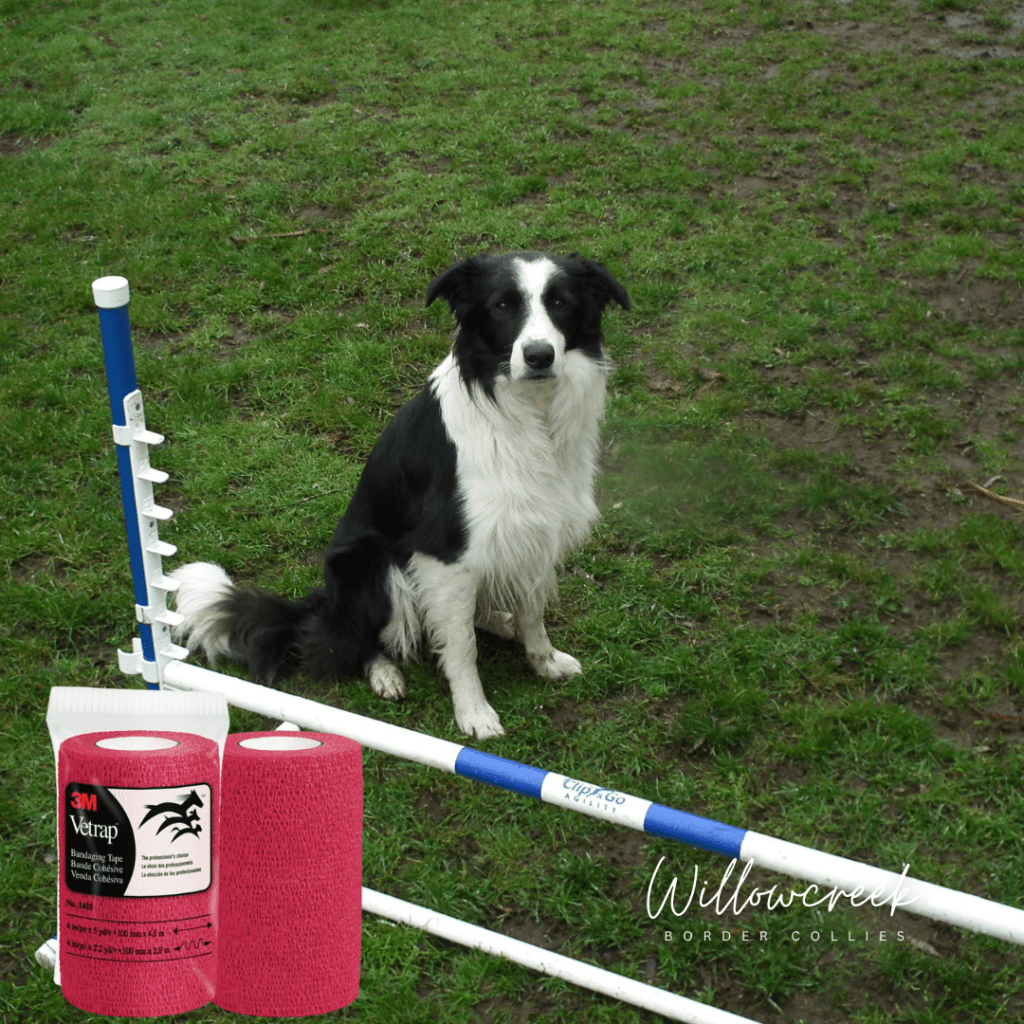Welcoming a puppy into your home is an exciting and fun occasion. As a responsible pet owner, one of the first questions that may cross your mind is, “Should I crate train my puppy?” Crate training is a valuable tool that can benefit both you and your puppy in various ways. All puppies from Willowcreek Border Collies are comfortable in xpens and crates, they begin to enjoy them at a young age and we build on their ability to be calm and confident in crates without their siblings. Puppies should easily adapt to their crate once home and we do believe it is a valuable training resource, if only for the first few months of their life.
-
- Safe Haven for Puppies:
Crate training provides puppies with a secure and comfortable space they can call their own. Dogs are den animals by nature, and a crate mimics the safety and security of a den. This can help alleviate stress and anxiety for your puppy, especially in unfamiliar surroundings. Lily loves her crate and as a multi-dog household I have several (doors are always open) that allows my dogs to ‘turn off’ or bug off when their not feeling the urge to play with their housemates.
- Safe Haven for Puppies:
Not all crates are built equally and I have invested money in “Amazon Basics” only to find they fall apart in 3 months. If you’re going to invest in a crate, ensure it’s a quality crate. We recommend mid-west, and at least a 36′ inch crate.
There are several furniture options as well, I prefer bars to ‘grates’, which puppies can get their teeth stuck in. This one is the one I have and I’ve used it now for a couple years

In terms of pens, I am in LOVE with my whelping pens, these are incredible and extremely versatile, they can be used as gates, indoors, outdoors and I have 5 of them (need I say more!).
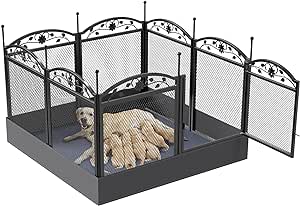
You can create a safe play area by attaching this to a crate or if you prefer the taller pens that will outlive their puppyhood, Brenda has this one and uses it both indoors and out.
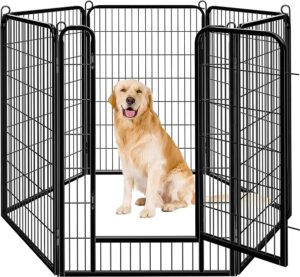
There are multiple advantages of secure puppy play areas.
-
- Effective Housebreaking:
Crate training is a powerful aid in housebreaking your puppy. Puppies naturally avoid soiling their living spaces, and a crate encourages them to hold their bladder until they are taken outside. This promotes quicker and more effective housebreaking, leading to fewer accidents inside the house. - Prevention of Destructive Behavior:
Puppies are notorious for chewing on furniture, shoes, and anything they can get their paws on. Crate training helps prevent destructive behavior by giving your puppy a designated space where they can safely enjoy their toys and treats. This not only protects your belongings but also ensures your puppy’s safety. - Facilitates Travel and Vet Visits:
Crate training makes travel and vet visits significantly less stressful for both you and your puppy. Familiarity with the crate provides a sense of security, making car rides and visits to the veterinarian a more positive experience. It also ensures the safety of your puppy during travel. - Establishment of Routine:
Crate training contributes to the establishment of a routine for your puppy. By creating a structured schedule for meals, playtime, and bathroom breaks, you help your puppy adapt to a predictable routine, promoting overall well-being
- Effective Housebreaking:
So, should you crate train your puppy? If you ask us, the answer is a resounding yes, considering the numerous benefits it offers. From providing a secure haven to aiding in housebreaking and preventing destructive behavior, crate training is an investment in your puppy’s well-being and your peace of mind as a pet owner. Start early, be patient, and watch as your puppy thrives in the structured and secure environment that crate training provides.







